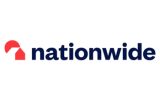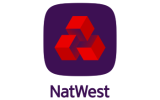Moving House Mortgage
See below for latest selected UK mortgage offers for moving house from competitive UK lenders.
If you require help on your mortgage options for moving home use our impartial mortgage advice service or click here if you are 55+ looking for options for borrowing in retirement.
What Are The Fees I Can Expect To Pay On A Mortgage?
Buying a property can be an expensive exercise and it is important that you are aware of all the costs that come into play when buying your home.
The costs relating to your mortgage will be set out clearly by the lender in what is known as the “Keyfacts” document provided to you.
These costs may include:
- Arrangement Fee – Charged by the lender to cover the administration costs of processing your mortgage. This will vary from deal to deal. You normally have the option of adding this fee to your mortgage but this will increase your cost of borrowing over the mortgage term.
- Mortgage broker Fee – If you have used a mortgage broker to help arrange your mortgage for you then a fee may be charged which will be outlined in your keyfacts document.
- Mortgage Account Fee – Applied by the lender at outset when you first take out your mortgage to cover the set up and termination costs of your mortgage.
- Valuation Fee – Charged by the lender to value your property in assessing the value for mortgage purposes.
- Re-inspection fees – If a lender has required you to make agreed repairs to the property a re-inspection may be required
- Higher lending charge – If you are borrowing a high loan to value the lender may decide they wish to insure the possibility that you may need to sell your home and this results in a loss.
- Early redemption charges – If you pay off part or all of your mortgage earlier than expected the lender may charge you a fee – this will be covered in your keyfacts document.
- Mortgage exit fee – Paid to your lender when you repay your mortgage.
- Insurance costs – as part of your mortgage you may be encouraged to take out insurance either by a broker or the lender to cover buildings insurance and other optional insurance such as mortgage life insurance.
Top 10 Mortgage Tips For 2024
- If you are unsure of your mortgage options, seek mortgage advice from a FCA regulated independent mortgage broker
- Maximise the deposit you can put down on your property to benefit from the most competitive Mortgage interest deals.
- Read the Lender Mortgage key facts document carefully to understand the costs being applied by the lender.
- Ensure you are comfortable that mortgage repayments (whether repayment or interest only) fall within your budget.
- Remember that mortgage discounts are temporary, and borrowing rates may increase when the discount period ends.
- If you are remortgaging, ask your current lender what deal they can offer you, as well as shop around.
- If your lender’s property valuation is too low, ask them to reconsider and provide supporting evidence from the sale price of other properties in your area.
- For interest only mortgages ensure that you plan carefully how to pay off your mortgage and check at regular intervals that your repayment strategy is on track.
- At the time of writing interest rates are at record lows. While borrowing is cheap now, this situation may change, so factor in a rise in interest rates into your budgeting calculations.
- Consider mortgage unemployment insurance in the event that you lose your job. This may provide valuable breathing space in covering mortgage repayments while you look for a new job.
How much can I borrow on my mortgage?
It is very important that when considering a mortgage you work out how much you can afford.
While there is a greater onus on mortgage lenders to lend responsibly you will also need to consider what level of borrowing is appropriate for your circumstances.
In simple terms lenders will base how much you can borrow on a multiple of your income (joint income for couples). However there are a number of factors that will determine what you can borrow from a mortgage company.
Mortgage lenders are required to apply strict rules to what they can lend to you based on your personal circumstances. In assessing affordability lenders will not only look at your income but also your outgoings e.g. monthly household bills. Lenders will look at your bank statements typically over the last 3 months to determine whether you can afford the mortgage you are looking for.
Many mortgage deals have initial periods where preferential terms are offered and borrowing costs are lower than normal – when this discounted period ends make sure you can afford any reasonable increase that may kick in. In assessing affordability lenders will take into account your income and outgoings and your current employment history. In calculating disposable income your total income will be taken into account less other debts you may have and living expenses.
The lender considering your mortgage application will have their own method of assessing affordability but it makes sense to do your own budgeting calculations to ensure the monthly repayment requirement is well within your budget.
In calculating how much you can borrow the lender will apply a maximum amount you can borrow called the loan to value of the property (LTV). E.g. If you are a first time buyer the lender may stipulate a LTV of 95% which means they are prepared to lend up to 95% of the value of the property (this will be assessed by the mortgage company’s own appointed surveyor). In this scenario the first time buyer would be required to put down at least 5% deposit towards the property purchase. The mortgage rate deals offered by a lender will be affected by the level of deposit that can be put down.
Generally speaking the higher the deposit that can be put down the better the mortgage rate can be achieved.
What Are The Fees I Can Expect To Pay On A Mortgage?
The costs relating to your mortgage will be set out clearly by the lender in what is known as the “Keyfacts” document provided to you.
These costs may include:
- Arrangement Fee – Charged by the lender to cover the administration costs of processing your mortgage. This will vary from deal to deal. You normally have the option of adding this fee to your mortgage but this will increase your cost of borrowing over the mortgage term.
- Mortgage broker Fee – If you have used a mortgage broker to help arrange your mortgage for you then a fee may be charged which will be outlined in your keyfacts document.
- Mortgage Account Fee – Applied by the lender at outset when you first take out your mortgage to cover the set up and termination costs of your mortgage.
- Valuation Fee – Charged by the lender to value your property in assessing the value for mortgage purposes.
- Re-inspection fees – If a lender has required you to make agreed repairs to the property a re-inspection may be required
- Higher lending charge – If you are borrowing a high loan to value the lender may decide they wish to insure the possibility that you may need to sell your home and this results in a loss.
- Early redemption charges – If you pay off part or all of your mortgage earlier than expected the lender may charge you a fee – this will be covered in your keyfacts document.
- Mortgage exit fee – Paid to your lender when you repay your mortgage.
- Insurance costs – as part of your mortgage you may be encouraged to take out insurance either by a broker or the lender to cover buildings insurance and other optional insurance such as mortgage life insurance.
Top 10 Mortgage Tips For 2024
- If you are unsure of your mortgage options, seek mortgage advice from a FCA regulated independent mortgage broker
- Maximise the deposit you can put down on your property to benefit from the most competitive Mortgage interest deals.
- Read the Lender Mortgage key facts document carefully to understand the costs being applied by the lender.
- Ensure you are comfortable that mortgage repayments (whether repayment or interest only) fall within your budget.
- Remember that mortgage discounts are temporary, and borrowing rates may increase when the discount period ends.
- If you are remortgaging, ask your current lender what deal they can offer you, as well as shop around.
- If your lender’s property valuation is too low, ask them to reconsider and provide supporting evidence from the sale price of other properties in your area.
- For interest only mortgages ensure that you plan carefully how to pay off your mortgage and check at regular intervals that your repayment strategy is on track.
- At the time of writing interest rates are at record lows. While borrowing is cheap now, this situation may change, so factor in a rise in interest rates into your budgeting calculations.
- Consider mortgage unemployment insurance in the event that you lose your job. This may provide valuable breathing space in covering mortgage repayments while you look for a new job.
How much can I borrow on my mortgage?
While there is a greater onus on mortgage lenders to lend responsibly you will also need to consider what level of borrowing is appropriate for your circumstances.
In simple terms lenders will base how much you can borrow on a multiple of your income (joint income for couples). However there are a number of factors that will determine what you can borrow from a mortgage company.
Mortgage lenders are required to apply strict rules to what they can lend to you based on your personal circumstances. In assessing affordability lenders will not only look at your income but also your outgoings e.g. monthly household bills. Lenders will look at your bank statements typically over the last 3 months to determine whether you can afford the mortgage you are looking for.
Many mortgage deals have initial periods where preferential terms are offered and borrowing costs are lower than normal – when this discounted period ends make sure you can afford any reasonable increase that may kick in. In assessing affordability lenders will take into account your income and outgoings and your current employment history. In calculating disposable income your total income will be taken into account less other debts you may have and living expenses.
The lender considering your mortgage application will have their own method of assessing affordability but it makes sense to do your own budgeting calculations to ensure the monthly repayment requirement is well within your budget.
In calculating how much you can borrow the lender will apply a maximum amount you can borrow called the loan to value of the property (LTV). E.g. If you are a first time buyer the lender may stipulate a LTV of 95% which means they are prepared to lend up to 95% of the value of the property (this will be assessed by the mortgage company’s own appointed surveyor). In this scenario the first time buyer would be required to put down at least 5% deposit towards the property purchase. The mortgage rate deals offered by a lender will be affected by the level of deposit that can be put down.
Generally speaking the higher the deposit that can be put down the better the mortgage rate can be achieved.
Compare Top Mortgage deals For Moving Home
The mortgage market is highly competitive and it should be remembered that what product is available to you will depend on your personal circumstances.
Here are some of the pros and cons of the types of deals your mortgage search may throw up:
- Tracker Mortgages – Unlike variable or fixed rate agreements, these mortgages will have their interest rates adjusted according to the Bank of England’s base rates. The rates for these mortgages are generally considered to be fairly easy to predict, especially compared to any sudden changes that may be introduced by a lender.
- Fixed Rate – Fixed rate mortgages are often preferred by customers who are looking for some long term security regarding their repayments. Using this agreement, the interest rates for a mortgage are guaranteed to remain the same for a set period, making budgeting for repayments relatively easy.
- Offset – Offset mortgages are best suited to customers who can commit a significant portion of their savings to their mortgage. Using this agreement, these savings are used to offset the cost of interest repayments, although it should be remembered that withdrawing any of the money used can result in increased interest repayments.
Keep these various options in mind while you use or product comparison tables to search for a mortgage deal that is right for you.
If you require independent mortgage advice use our impartial service:
Mortgage Lender Links
- Abbey Mortgages
- Abbey National Mortgage
- Accord Mortgages
- Alliance and Leicester Mortgage
- Aldermore Mortgages
- Allied Irish Bank Mortgages
- AVIVA Mortgages
- Bank of China Mortgages
- Bank of Ireland Mortgages
- Bank of Scotland Mortgage
- Barclays Mortgage
- Barnsley Mortgages
- Bath Building Society Mortgages
- Beverley Building Society Mortgages
- BM Solutions Mortgages
- Bradford and Bingley Mortgages
- Bristol and West Mortgage
- Britannia Mortgages
- Buckinghamshire Building Society Mortgages
- C and G Mortgage
- Cambridge Mortgage
- Chelsea Building Society Mortgage Rates
- Cheltenham and Gloucester Mortgages
- Chesham Building Society Mortgages
- Cheshire Building Society Mortgages
- Chorley Building Society Mortgages
- Clydesdale Bank Mortgages
- Co-operative Bank Mortgage
- Coventry Mortgages
- Cumberland Building Society Mortgages
- Darlington Mortgages
- Derbyshire Mortgage
- Direct Line Mortgage
- Dunfermline Mortgage
- Ecology Building Society Mortgages
- First Active Mortgages
- First Direct Mortgages
- First Trust Bank Mortgages
- Furness Mortgage
- GE Money Mortgages
- Halifax Mortgages
- Hanley Building Society Mortgages
- Heritable Bank Mortgages
- Holmesdale Building Society Mortgages
- HSBC Mortgages
- Intelligent Finance Mortgage
- Investec Mortgages
- Ipswich Mortgage
- Kensington Mortgage
- Kent Reliance Mortgage
- Leeds and Holbeck Mortgages
- Leeds Building Society Mortgages
- Legal and General Mortgages
- Lloyds Bank Mortgages
- Loughborough Mortgages
- Manchester Building Society Mortgage
- Mansfield Building Society Mortgages
- Market Harborough Building Society Mortgages
- Marsden Mortgages
- Melton Mowbray Mortgages
- Metro Bank Mortgages
- Monmouthshire Building Society Mortgages
- National Counties Mortgages
- NatWest Mortgage
- NatWest Mortgage Application
- Newbury Building Society Mortgages
- Newcastle Mortgage
- Northern Bank Mortgage
- Norwich and Peterborough Mortgages
- Nottingham Mortgage
- One Account Mortgage
- Paragon Mortgages
- Penrith Building Society Mortgages
- Pink Home Loans Mortgages
- Platform Mortgages
- Post Office Mortgages
- Precise Mortgages
- Principality Building Society Mortgages
- Progressive Building Society Mortgages
- RBS Mortgages
- Royal Bank of Scotland Mortgages
- Saffron Building Society Mortgages
- Santander Mortgages
- Scarborough Building Society Mortgages
- Scottish Building Society Mortgages
- Scottish Widows Mortgages
- Shepshed Building Society Mortgages
- Skipton Building Society Mortgages
- Smile Mortgage
- Stafford Railway Mortgages
- Standard Life Mortgage
- Stroud and Swindon Building Society Mortgages
- Teachers Building Society Mortgages
- TESCO Mortgages
- Tipton and Coseley Mortgages
- TSB Mortgages
- UCB Home Loans
- Ulster Bank Mortgage
- Vernon Mortgages
- Virgin Money Mortgages
- West Brom Mortgages
- Woolwich Mortgage
- Yorkshire Bank Mortgages
Mortgage Links
- 2 Year Fixed Rate Mortgages
- 3 Year Fixed Rate Mortgages
- 5 Year Fixed Rate Mortgages
- 10 Year Fixed Rate Mortgages
- 50% LTV Mortgages
- 70% LTV Mortgages
- 75% LTV Mortgages
- 80% LTV Mortgages
- 90% LTV Mortgages
- 95% LTV Mortgages
- 5% Deposit Mortgages
- 20% Deposit Mortgages
- Bad Credit Mortgages
- Base Rate Mortgage
- Best Offset Mortgages
- Best Tracker Rate Mortgages
- Bridging Finance
- Buy To Let Mortgages
- Capped Rate Mortgage
- Cashback Mortgages
- Commercial Mortgages
- Current Account Mortgages
- Discounted Variable Rate Mortgages
- First Time Buyer Mortgages
- Fixed Rate Mortgages
- Fixed Rate No Fee Mortgages
- Flexible Mortgage
- High Loan to Value Mortgages
- High Value Mortgage
- Interest Only Fixed Rate Mortgage
- Interest Only Mortgage Calculator
- Interest Only Mortgages
- Joint Mortgages
- Landlord Mortgages
- Lifetime Tracker Mortgage
- Low Cost Mortgages
- Low Interest Mortgages
- Low LTV Mortgages
- Low Rate Mortgages
- Mortgage Agreement In Principle
- Mortgages for Over 50s
- Mortgages for Over 60s
- Mortgages for Over 65s
- Mortgages for Agency Workers
- Mortgages for Auction Properties
- Mortgages for Company Directors
- Mortgages for Contractors
- Mortgages for Doctors
- Mortgages for Guest Houses
- Mortgages for mobile homes
- Mortgages for wooden houses
- Mortgage Insurance
- Mortgage for New Build House
- Mortgage Payment Holidays
- Moving House Mortgage
- New Buy Mortgages
- No Deposit Mortgages
- Remortgage
- Repayment Mortgage
- Second Mortgage
- Second Home Mortgages
- Self Build Mortgage
- Self Cert Mortgage
- Self Employed Mortgage
- Shared Equity Mortgages
- Shared Ownership
- Sub Prime Mortgage Lenders
- Tracker Mortgages
- Variable Rate Mortgage











